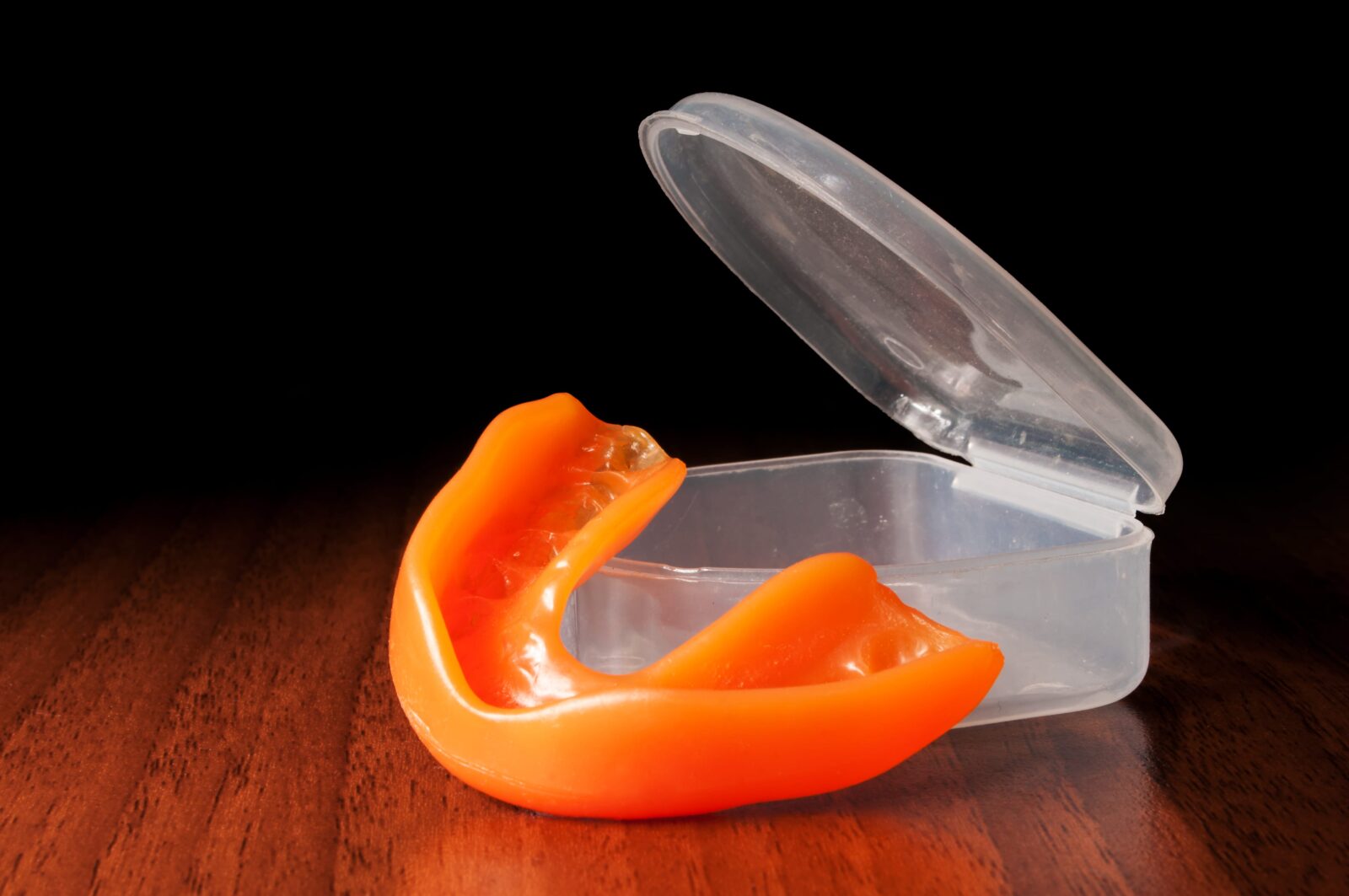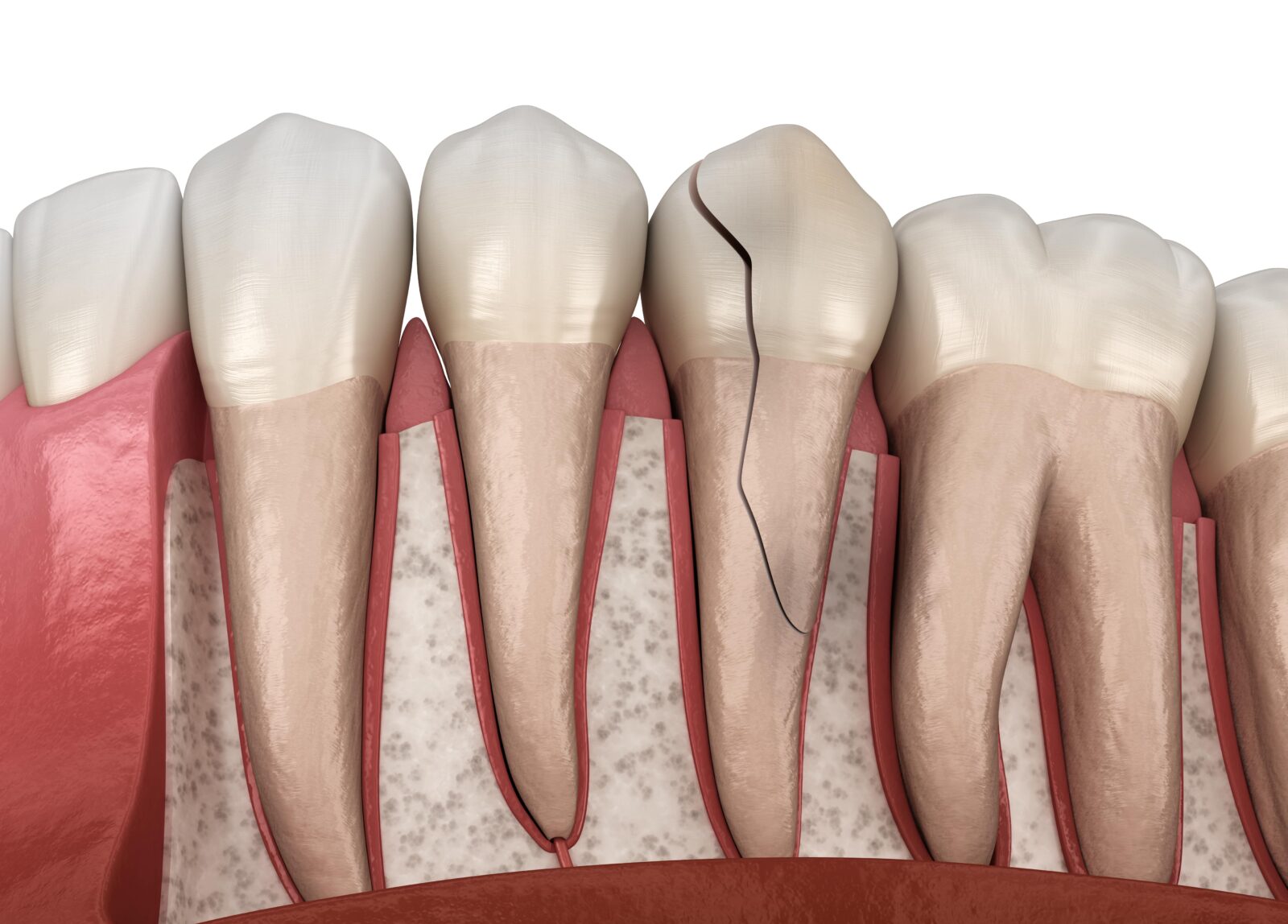Did you know that National Facial Protection Month is in April? The Academy for Sports Dentistry, American Academy of Pediatric Dentistry, American Academy of Pediatrics, American Dental Association, American Association of Oral and Maxillofacial Surgeons, and the American Association of Orthodontists all come together in April to raise awareness of the importance of wearing mouthguards to protect your teeth and facial tissues. In this blog post, we will discuss what mouthguards are, the three different types of mouthguards, and the importance of wearing mouthguards. We will also list various dental problems that can be avoided by wearing a mouthguard!
What is a mouthguard?
Mouthguards are devices that cover your teeth and gums to protect them from injury. There are three different types of mouthguards: stock, boil-and-bite, and custom-fitted.

- Stock mouthguards are pre-made and can be bought at most sporting goods stores. They offer minimal protection and can be uncomfortable since they don’t always fit well.
- Boil-and-bite mouthguards are made of a thermoplastic material that becomes soft when heated in water. These mouthguards can be bought at most sporting goods stores and can be fitted to your teeth at home. They provide a better fit than stock mouthguards, however they are not made out of a strong material. Make sure to look for the ADA Seal of Approval when buying an over the counter mouthguard.
- Custom-fitted mouthguards are made by taking an impression of your teeth and then having a dental professional create a custom-fitted mouthguard for you. These mouthguards offer the best fit and protection since they are customized for the individual, as well as the sport being played. They are also made out of quality dental materials.
Mouthguards are important because they can protect your teeth, gums, and lips from injury. They can also help to prevent concussions. According to the American Dental Association, mouthguards should be worn when playing sports such as football, hockey, lacrosse, basketball, and baseball, among others.
Various Dental Problems That Can Be Prevented by Wearing a Mouthguard
There are many different types of dental problems that can easily be prevented by wearing a mouthguard. At a glance, tooth loss, damaged teeth, soft tissue injuries, jaw fractures, and concussions are all dental problems that can be prevented by wearing a mouthguard.
Tooth Loss
Teeth can become loose or knocked out after absorbing an impact to the mouth. In some cases, the tooth can also be driven down into the tooth socket. Teeth that have been knocked out may or may not be able to be fixed and may need to be replaced with a prosthetic. Teeth driven into the socket will usually require oral surgery to restore their position. Mouthguards can help to prevent tooth loss by absorbing the impact of a blow to the face.

Damaged Teeth
Even if a blow to the mouth is not strong enough to displace the tooth, it can still cause the tooth to fracture or chip. Damaged teeth can affect the look of your smile and can also increase the risk of tooth decay. Additionally a fractured tooth root may require a tooth extraction and prosthetic tooth. Mouthguards can help to prevent damage to the teeth by absorbing the impact of a blow to the face.
Soft Tissue Injuries
Injuries to the cheeks, gums, and tongue can also occur when one is hit in the face. Depending on the severity of the injury, stitches may be needed to stop the bleeding and restore the tissues. Mouthguards can help to prevent soft tissue injuries by covering the soft tissues and preventing the teeth from accidentally biting the cheeks or tongue.
Jaw Fractures
In rare cases, an extremely powerful impact can even cause the jaw bone to fracture. Mouthguards can help to prevent jaw fractures by absorbing and evenly distributing the impact of a blow to the face to prevent one area from absorbing the full impact.
Concussions
While concussions are not a dental problem, they are still a common injury that can result from being hit in the face. Mouthguards can help to prevent concussions since they position the jaw slightly ahead of the rest of the skull. This reduces the force exerted on the back of the skull and decreases the risk and severity of a concussion.
In Conclusion
In conclusion, mouthguards are important because they can protect your teeth, gums, and lips from injury. They can also help to prevent concussions. Various dental problems that can be prevented by wearing a mouthguard include tooth loss, damaged teeth, soft tissue injuries, jaw fractures, and concussions.
We hope you found this blog post informative! If you have any questions about mouthguards or would like to schedule an appointment with our office, please contact us today!
